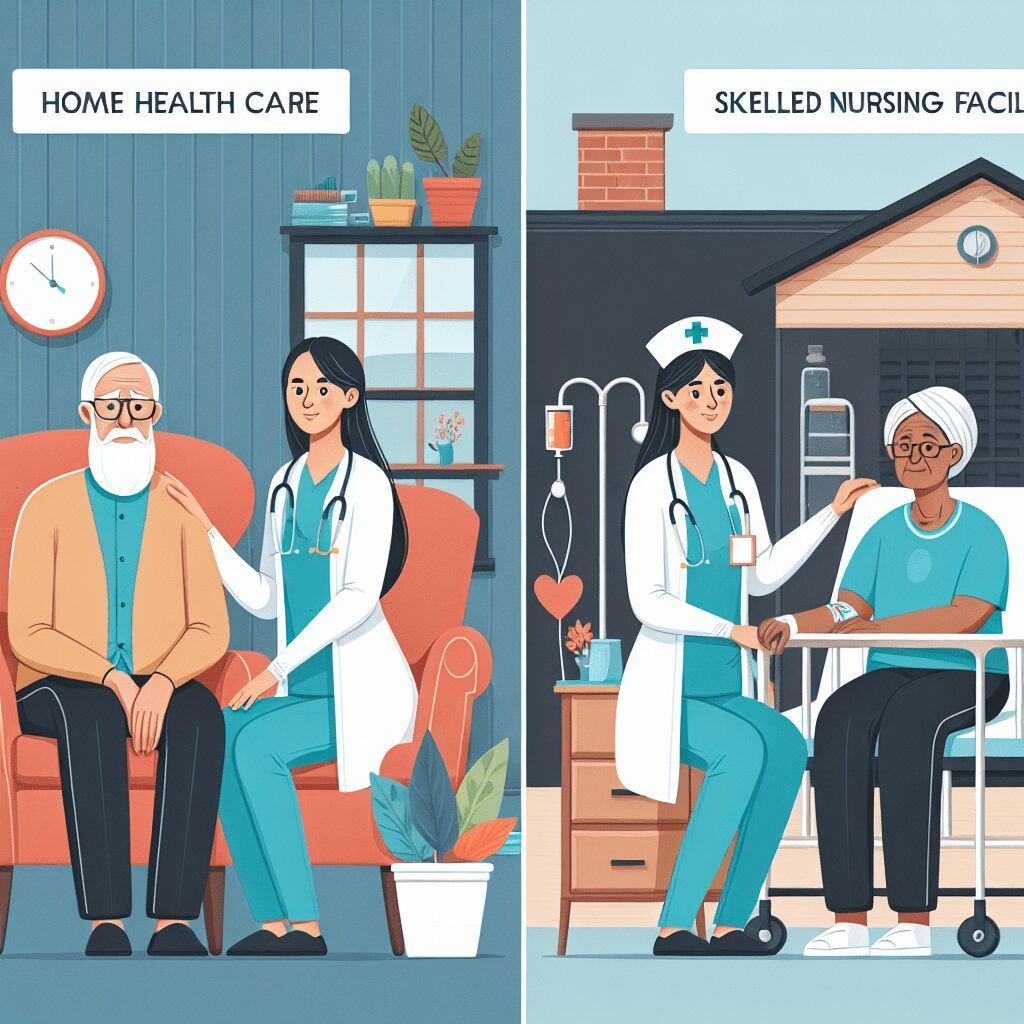Affordable Home Health Care in Houston
Are you looking for affordable home health care in Houston? You’re in luck! There are many options to choose from now. You can find good care at a great price.
Houston provides in-home nursing, physical therapy, and medication management. You can get the care you need without spending too much money.
Discover how to access quality care without overspending in Houston.
Guide to Affordable Home Health Care in Houston
When looking for affordable home health care in Houston, families should think about important factors like the senior’s specific needs, location, and state regulations affecting costs.
Here are some tips for comparing costs between private in-home caregivers and agency-provided caregivers:
- Compare hourly rates
- Look at contract terms
- Consider overhead costs
Private caregivers can create personalized care plans based on the senior’s needs, while agencies offer trained aides and support for different health conditions.
It’s important to assess the level of care required, whether it’s companionship, medical care, or round-the-clock assistance, to find the most cost-effective option.
Knowing coverage options through insurance or assistance programs can also reduce some elder home care expenses. By considering these factors, families can make well-informed decisions about the best care plan for their loved one in Houston.
Understanding In-home Care Costs
Private Pay Home Care Rates by State
The average private pay home care rates can vary by state.
Factors like location, state regulations, and cost of living play a role.
In Texas, for example, the median cost for home care is $30 per hour according to the MetLife Cost of Care study for 2019.
Rates may change based on the care level needed.
This could range from basic companionship to medical care for conditions like dementia.
Some states have higher rates due to more expenses and services.
Others offer lower rates due to fewer costs and regulations.
Families seeking private caregivers should assess care needs.
This assessment can impact service costs and insurance requirements.
Cost Variation Based on Care Needs
Different levels of care needs can significantly impact the cost of in-home care services for seniors. Factors that contribute to cost variation based on care needs include:
- The type and frequency of assistance required.
- The complexity of medical care.
- The need for specialized services such as dementia care.
- The level of companionship and social stimulation desired.
Understanding the specific care requirements of a loved one is important. This understanding allows families to assess:
- The necessary hours of care.
- The level of expertise needed from caregivers.
- The inclusion of additional services like transportation or daily check-ins.
By tailoring a personalized care plan to the individual’s needs and preferences, families can make informed decisions about cost-effective care options. This prioritizes the health, safety, and well-being of their loved ones without compromising on quality or support.
Structuring of Home Care Rates
Home care rates for private pay clients depend on factors like the level of care needed, location, and services required. Hourly rates may differ for private caregivers and agency-provided caregivers due to various costs involved. Services like medical care, daily tasks assistance, companionship, and transportation can influence the overall cost.
Agencies offer different care options, while private caregivers offer more flexibility in terms of scheduling, services, and training. Consider the senior’s specific needs, cost of living, state regulations, and daily support level when determining home care rates.
Family caregivers also provide essential social and cognitive support and assist with chronic conditions for their loved ones.
Factors Impacting the Cost of In-home Care
Different In-home Care Cost Plans
In-home care cost plans can vary. The level of care needed determines the cost. Different types of plans are available: hourly rates, live-in care, or full-time help. Costs depend on factors like location, state regulations, and specific care needs.
When choosing between private caregivers and agency-provided caregivers, families should consider:
- Hourly rates
- Overhead costs
- Contract terms
Private caregivers may offer personalized care but could be more expensive. Agencies providing trained aides might have lower costs. Assess the senior’s health and support needs, the family’s budget, and preferences when selecting a care plan.
Also, consider:
- Insurance coverage
- Transportation
- Additional services like homemaker assistance or dementia care for comprehensive support.
Considerations for Private In-home Caregivers
When choosing private in-home caregivers for senior loved ones, families should consider their qualifications and experience in providing care.
A caregiver should have training in areas like dementia care, medical assistance, and support for chronic conditions. Additionally, caregivers should undergo continued training to stay updated on best practices for elder home care.
To personalize care, private caregivers can conduct a needs assessment to create a customized care plan that addresses the senior’s specific health and companionship needs.
This tailored approach ensures that seniors receive the right level of assistance and social stimulation. Caregivers should also prioritize safety by implementing strategies to adapt to the senior’s cognitive abilities and daily routine.
This includes setting up a safe living environment, providing transportation, and offering round-the-clock care when needed.
By staying flexible, trained aides can provide full-time help while respecting the senior’s preferences, creating a supportive and comfortable setting for day-to-day life.
Considerations for Agency-provided Caregivers
When choosing agency-provided caregivers for home care, families should ask about the caregiver’s training and qualifications. This ensures quality assistance for their senior loved ones.
Families should also understand how agencies handle scheduling and coordination. This helps tailor care plans to the specific needs of the individual.
It’s important to explore the support systems for agency-provided caregivers. This ensures mechanisms are in place to address any challenges or issues during caregiving.
Support systems may include ongoing training, access to supervision, and resources for health and safety concerns.
By considering these aspects, families can make informed decisions about the costs and benefits of agency-provided care. This ensures the well-being and comfort of their loved ones receiving home care services.
Comparing Private and Agency In-home Care Expenses
When comparing private in-home care with agency-provided services, there are several important differences to consider:
- –Private Caregivers– :
- Usually charge lower hourly rates.
- Costs may vary based on caregiver’s experience and care needs.
- Does not always guarantee full-time or round-the-clock care.
- –Agency-Provided Services– :
- Offer full-time help and round-the-clock care.
- Have trained aides due to staffing costs and training.
- May have additional overhead costs, resulting in higher hourly rates.
Families should think about various factors such as transportation, location, and state regulations that can affect expenses. When making a decision, it’s important to consider not only the cost but also the level of care, assistance, and support needed for the senior’s daily life and health.
Analyzing Home Health Care Costs
Home health care costs can vary based on the level of care needed. This includes hourly rates for caregivers providing companionship or more specialized medical care. Factors to consider when analyzing in-home care costs: location, state regulations, and specific care needs of the senior or loved one.
Individuals can compare expenses of private caregivers with agency-provided caregivers by:
- assessing services offered
- reviewing contractual terms
- considering overhead costs
- evaluating caregiver training.
Private caregivers may offer more flexibility and personalized care plans. Agency-provided caregivers often come with additional support, such as daily check-ins and trained aides. Understanding the full scope of care options, from assisted living to in-home care, can help families make informed decisions about the cost of elder home care and appropriate coverage from insurance or assistance programs.
Comparison Between Home Care and Nursing Homes
Cost Analysis: In-home Care vs. Assisted Living
When comparing the costs of in-home care versus assisted living, consider several factors:
- –Location :– Where are the care services provided?
- –Specific Care Needs :– What kind of care does the senior require?
- –State Regulations :– Are there any rules that might affect pricing?
In-home care often involves hourly rates for caregivers who assist with transportation, companionship, and daily activities.
Assisted living facilities usually have a flat fee that covers room and board, medical care, and support services.
When deciding between private caregivers and agency services, families should think about overhead costs and staffing expenses.
Financial factors also include insurance coverage, contract terms, and creating a personalized care plan for the senior’s health and daily needs.
By comparing the expenses of in-home care and assisted living, families can choose based on the care options, flexibility, and support needed for their loved one.
Cost Evaluation: In-home Care vs. Nursing Homes
When comparing the cost of in-home care versus nursing homes, families need to consider several factors:
- The level of care needed is important. In-home care costs can vary based on the number of hours a caregiver is needed each week, while nursing homes have set costs.
- Location and state regulations also affect costs for both options.
- In-home care offers personalized attention and flexible care options. Nursing homes include overhead costs for services like transportation, medical care, and support all day.
- Families should assess their loved one’s care needs, like daily activities, cognitive abilities, and chronic conditions, to decide which option is best.
By considering these factors, families can make an informed choice on the cost of in-home care versus nursing homes.
Finding the Right Home Care Services
Signs Indicating the Need for Home Care Assistance
When considering the need for home care assistance, families should look at various signs that indicate additional support may be necessary.
Signs to consider include:
- Daily tasks like bathing, dressing, and meal preparation becoming increasingly difficult for a senior loved one.
- Frequent falls or accidents at home may indicate the need for a caregiver to ensure safety.
- Concerns about the individual’s well-being and safety when left alone for extended periods are important factors to evaluate.
Understanding the costs associated with home care services is crucial for making informed decisions about providing necessary support and assistance for senior family members.
Step-by-Step Guide to Hiring an In-Home Caregiver
When hiring an in-home caregiver for a senior loved one, there are some important steps to follow:
- Assess the care needs of the senior. Consider medical care, day-to-day support, companionship, and transportation.
- Research and contact home care agencies or private caregivers for information on services, rates, and contracts.
To find the right caregiver:
- Conduct interviews and background checks. Ask about experience, training, check-in procedures, scheduling flexibility, and ongoing training.
- Discuss a personalized care plan, staffing costs, and services like homemaker services, social activities, and 24/7 care.
By evaluating these factors carefully, families can make a well-informed decision and choose the best caregiver for their loved one.
Making Informed Decisions for Senior Care
When considering home care options for a senior loved one, families should factor in several elements to make informed decisions.
These elements include the location, state regulations, and specific care needs of the senior requiring assistance. It’s important to understand the costs associated with in-home care. Costs can range from hourly rates for private caregivers to full-time help with live-in care.
Comparing expenses between private caregivers and agency services can help determine the most cost-effective solution. Exploring elder home care contracts, insurance coverage for medical care, and support services like transportation and homemaker assistance can give a clearer picture of overall care costs.
To navigate these choices effectively, individuals can seek resources such as needs assessments, personalized care plans, and information on staffing and overhead costs. By weighing these factors and exploring available resources, families can make informed decisions tailored to their loved one’s health and lifestyle needs.
FAQ
What services are typically offered by affordable home health care providers in Houston?
Affordable home health care providers in Houston typically offer services such as assistance with personal care, medication management, light housekeeping, and meal preparation. They may also provide companionship, transportation to appointments, and assistance with activities of daily living.
Can I choose the specific caregiver I want for my loved one when using affordable home health care in Houston?
Yes, some affordable home health care agencies in Houston allow you to choose the specific caregiver you want for your loved one. For example, you can request a caregiver with specialized experience or language skills to best meet your loved one’s needs.
How can I determine if a home health care provider in Houston is affordable?
To determine if a home health care provider in Houston is affordable, you can compare their rates with other providers in the area, check if they accept insurance or offer payment plans, and inquire about any financial assistance programs they may offer.
Are there financial assistance options available for affordable home health care in Houston?
Yes, financial assistance options for affordable home health care in Houston include Medicaid, Medicare, and veteran benefits. Additionally, some charitable organizations and non-profit agencies offer financial aid for those in need.
What steps should I take to find the best affordable home health care provider in Houston for my needs?
- Research online for top-rated providers in Houston.
- Ask for recommendations from doctors or friends.
- Check reviews on platforms like Yelp or Google.
- Interview potential providers and ask about their services and prices.
- Choose a provider that meets your needs and budget.
The post Affordable Home Health Care in Houston first appeared on Home Health & Care Giving Service in Houston, TX.

Whether dealing with chronic illness or needing help recovering a surgery, ABET Life will support you with our focused care — covered by Medicare or other insurance carriers for qualified patients.
USEFUL LINKS
All Rights Reserved | AbetLife, Inc | Terms of Use | Privacy Policy











